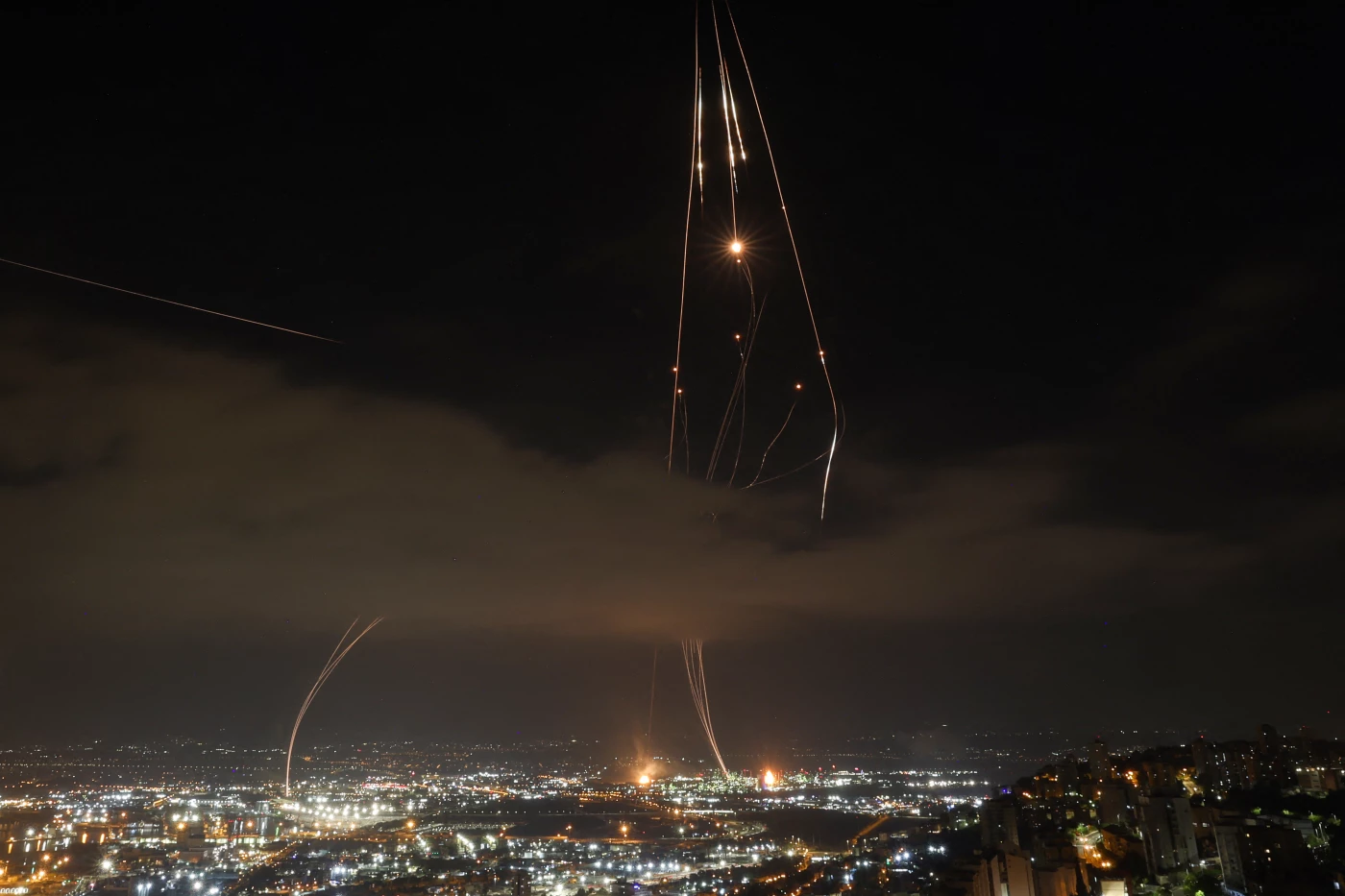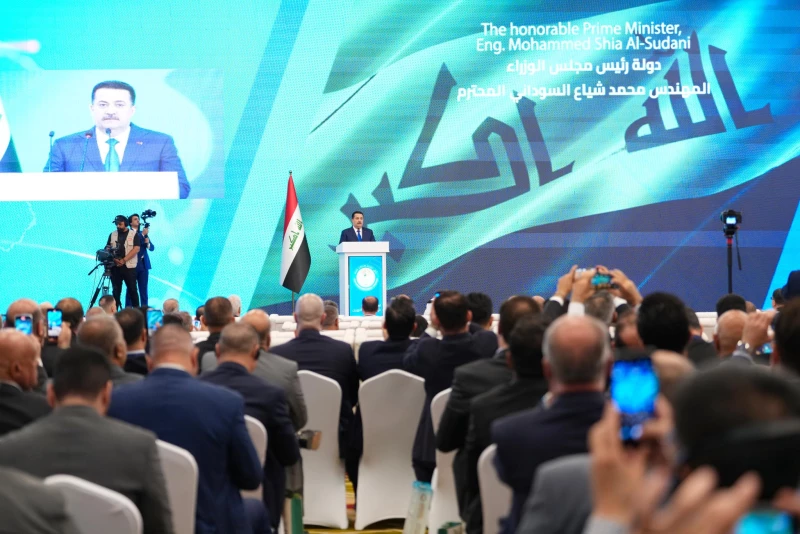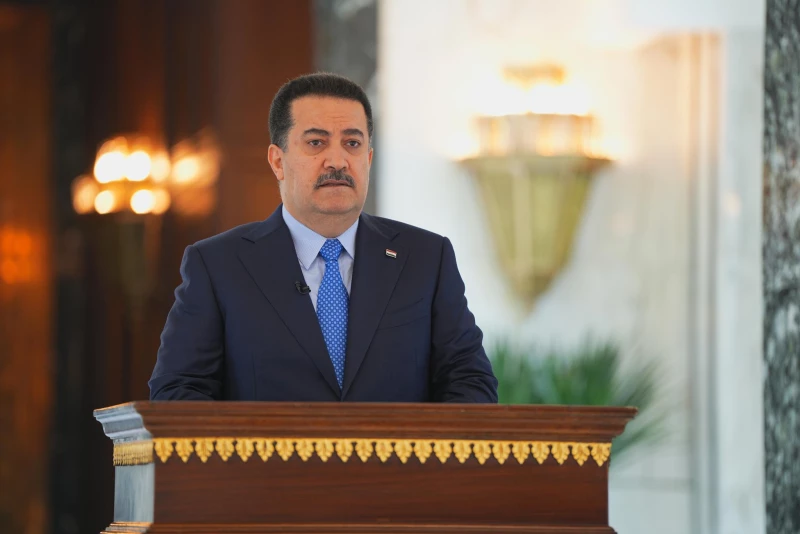ERBIL, Kurdistan Region of Iraq - Iraq's strategic location between warring Israel and Iran put the country in a precarious position, experts told The New Region, posing security challenges and raising fears of drastic economic consequences should Tehran retaliate by closing the Strait of Hormuz.
On the fifth day of hostilities that began when Israel conducted a large-scale aerial offensive against its Iranian foe on Friday, concerns have also been raised regarding the prospective participation of pro-Iran militia groups in Iraq in actions against Isael and the consequences this would entail for Iraq's security.
Baghdad under pressure
Security and strategic expert Imad Alou told The New Region that Iraq is under a lot of pressure because it is caught in the crossfire between Iran and Israel. “Iraq is trying to avoid harm and protect its people during the fighting between Iran and Israel,” he said.
Alou added that Iraq is facing a diplomatic problem. The country filed an official complaint with the United Nations Security Council after Israeli planes entered Iraqi airspace to attack Iran. This happened because Iraq’s air defenses are weak.
He said Iraq is in a tough position, seeking to protect the sovereignty of its airspace amid Israel's highly-advance air force and its successes in garnering air superiority over Iran.
Alou said another challenge is maintaining security within its borders. “Iraqi security forces are following well-planned steps to keep peace and stop any dangers, like terrorism or violence,” he said. “But the hot weather and tense situation are making things very hard for the soldiers on the ground.”
He also stressed how important it is to protect Iraq’s borders, especially the long border with Syria, which stretches over 600 kilometers. He warned that some people linked to ISIS might be released and try to enter Iraq again, which would put the country in danger.
“There are talks and meetings between Iraq and Syria to keep the border safe,” he said. “Iraqi troops have been controlling that area well for several months, ready to stop any attempts to sneak in.”
Internal security challenges
Political expert Mohammed Ali al-Hakim told The New Region that the Iran-Israel war will bring serious internal and external challenges for Iraq. “Inside the country, some armed groups are threatening to join the war. This puts the government in a bad position in front of the world and might lead to international action against Iraq,” he said.
Hakim said the government cannot stop these groups from acting. “This is a big political and security challenge,” he added.
He also warned that Iraq could face an economic and financial crisis if the war goes on. “The dollar, gold, and other prices are already rising,” he said. “This regional conflict could hurt Iraq the most, especially since its skies are now a battlefield between Iran and Israel. This is the biggest challenge for Baghdad right now.”
An economy in danger
When Israel launched its first strike on Iran early on June 13, 2025, oil, gold, and US dollar prices jumped in Iraq and worldwide, impacting Iraq's trade situation.
Iran has also threatened to close the Strait of Hormuz to pressure its Western foes, warning that Tehran could hamper world trade in retaliation for Israeli attacks. This could cause a new worldwide economic crisis, especially for nearby countries like Iraq that rely on the strait to export oil.
Iraqi Prime Minister’s adviser, Mazhar Mohammed Saleh, told The New Region that geography is a tough challenge. “If the Strait of Hormuz is closed, it will block 20% to 30% of the world’s energy flow,” he said. “This is not just Iraq’s problem. It matters to OPEC and all oil-producing countries.”
Saleh said Iraq is the fourth-largest oil producer in the world and second in OPEC. “If Iraq can’t send oil out, the whole world, not just Iraq, will suffer,” he said. “The war will have big economic effects across the globe.”
He confirmed that closing the Strait would hurt Iraq’s finances. He also said the government is working on other ways to export oil, though none can fully replace the strategically essential Strait.
“In this situation, Iraq’s only option is the Ceyhan pipeline,” he said. “But that line is currently facing legal and technical problems. It might help, but it’s not enough because it has limited capacity.”
Saleh said the Kirkuk–Ceyhan pipeline can carry up to 1 million barrels of oil per day from both the Kurdistan Region and the federal government. “It could help a little if the war continues and the Strait stays closed,” he said.
He added that Iraq is trying to export oil through different routes, including the Mediterranean Sea. “There are plans to reopen the Kirkuk–Baniyas pipeline, which was important in the past and used during the Iran–Iraq War. But for now, it’s not working because of certain issues.”
Saleh explained that Iraq’s only real option now is the Iraq–Turkey pipeline, with a few smaller export routes elsewhere. “But the impact will still be huge because two-thirds of Iraq’s oil exports go through the Gulf via the Strait of Hormuz,” he said. “Most of that oil goes to Asia, especially China and India. Over 2 million barrels are sent to those countries, and Iraq exports about 3.3 million barrels a day in total.”
He said Iraq’s imports will also suffer if the strait closes. “Shipping costs will go up, and there will be more transport and insurance risks. The whole region’s trade and investment will be affected,” he said.
“If the war lasts long and the strait closes, the whole world will face danger. There will be an energy crisis, and the world economy will suffer. This will be an economic war more than a political one,” Saleh warned.



 Facebook
Facebook
 LinkedIn
LinkedIn
 Telegram
Telegram
 X
X


